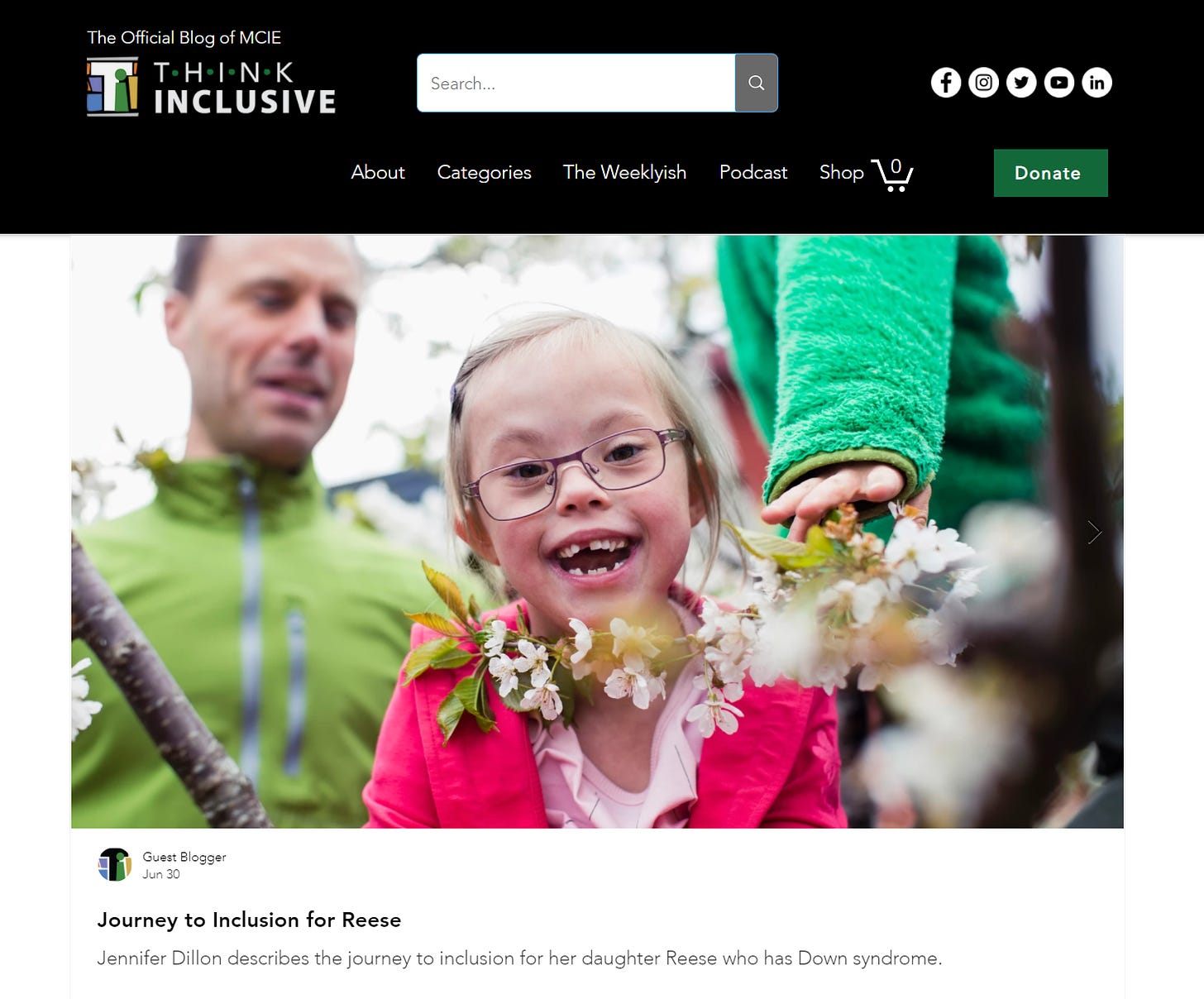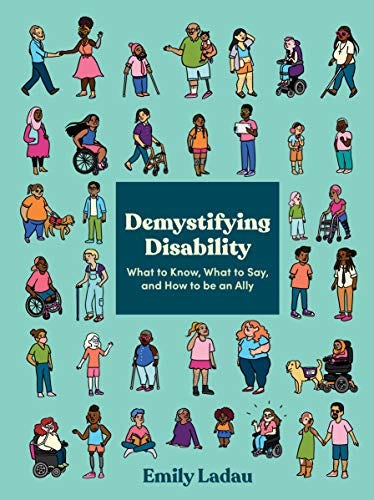When Families Fight for Segregation
What can inclusionists do when families fight for segregated special education classrooms?

If you’ve been a reader of the Weeklyish for any length of time, you know my thoughts on why we don’t need to continue creating special programs for students with disabilities to be removed so they can have specialized instruction. But even in the most inclusive school systems, there are times when the law permits for students to be removed from general education settings.
Last time, I wrote about what we can do about students we haven’t figured out how to include in a meaningful way. This time, I want to work through what we can do as inclusionists when families fight for a segregated classroom.
Real talk. I don’t blame families who want segregated special education classrooms because they think it would be better for their children. But (also real talk), self-contained special education classes promise things they can't deliver.
In a 2011 research study, Julie Causton and George Theoharis (among others) compared why students with disabilities were placed in self-contained classrooms. They found there were four main reasons:
Classroom community
Distraction-free environments
Specialized curriculum and instruction
Behavior support
But although these are the reasons people want students with disabilities in segregated special education classes, most of these classes do not provide these four things. Instead, through the study, they found that the students observed were not learning in classrooms with a protective and strong community, they were in much more (not less) distracting settings, they were not accessing the general curriculum in an individualized manner, and school staff were not using thoughtful behavioral interventions but were using threats, timeouts, and restraints.
Maybe you are thinking, “Well, they didn't observe the right classrooms!”
Speaking from the perspective of someone who spent the entirety of my time as a classroom teacher in a self-contained setting, I can't disagree with these findings. I think I was a pretty good teacher, and every year I tried my best to deliver on all of these promises. But, when you put students who have intellectual, social, and behavioral difficulties all in one place, what do you think will happen?
Given this reality, shouldn’t we try to convince families to ditch their self-contained dreams and fight for inclusive classrooms? Not necessarily.
We interviewed Sara Jo Soldovieri and Janice Fialka on The Think Inclusive Podcast, and we talked about this very thing. And without any major spoilers, I’ll share the consensus to our conversation.
The one thing we can do when families fight for segregation is listen.
For inclusionists who don’t have children in special education and aren’t living the experience of going to Individualized Education Program meetings, it is easy to take for granted how emotionally exhausting it can be to advocate.
Families are fighting for their children and doing what they think is best. And so the best thing we can do is listen to their concerns. That’s it. That is our main job. It is never to make a family feel bad for choosing a special education classroom.
If you are in that situation, I’d love to chat with you about it. And I hope you know I’m always ready to listen.
Think Inclusive’s New Look
Guess what, y’all? The wait is over. The new Think Inclusive website is up and running. Here is a screenshot. Take some time and check it out. New blog posts start back in August!

ICYMI
In the most recent episode of The Think Inclusive Podcast, we talk with Sarah Wishart, filmmaker of Excluded, a documentary that features the stories and voices of students who have been excluded from school in the United Kingdom.
We discuss why she was inspired to make the film by something she saw on Twitter and why she thinks exclusion isn’t good for anyone.
This episode's transcript can be found here.
In The News
A federal district judge has blocked a West Virginia law that barred an 11-year-old transgender girl who was kept from participating on her middle school cross-country and track teams.
A two-time Paralympic swimmer who is deaf and blind withdrew from the Tokyo games after being told she couldn’t have a personal care assistant accompany her.
More wheelchair access is coming to Broadway theatres.
Films like "CODA" and "Sound of Metal" drew praise for portraying disability in an authentic way. Hollywood is noticing.
What I’m Reading

Demystifying Disability comes out in September, and we have a podcast interview with Emily Ladau coming out the same month. We can’t wait!
What I’m Watching
The first season of Never Have I Ever was fantastic, and Season 2 did not disappoint. There are some very nice themes of self-acceptance, especially with queer identities.
What I’m Listening To
Radiolab is one of my favorite podcasts (just for the production value). This episode covers the ugly history of eugenics and how it still applies today. Highly recommended but make sure you have a palate cleanser ready afterward.
What’s in my Timeline


From the Wayback Machine
I Wouldn’t Change a Thing About My Autistic Son
It took me a few months, but I finally learned that autism wasn’t the thing that needed treatment, it was my own ignorance and fear.




